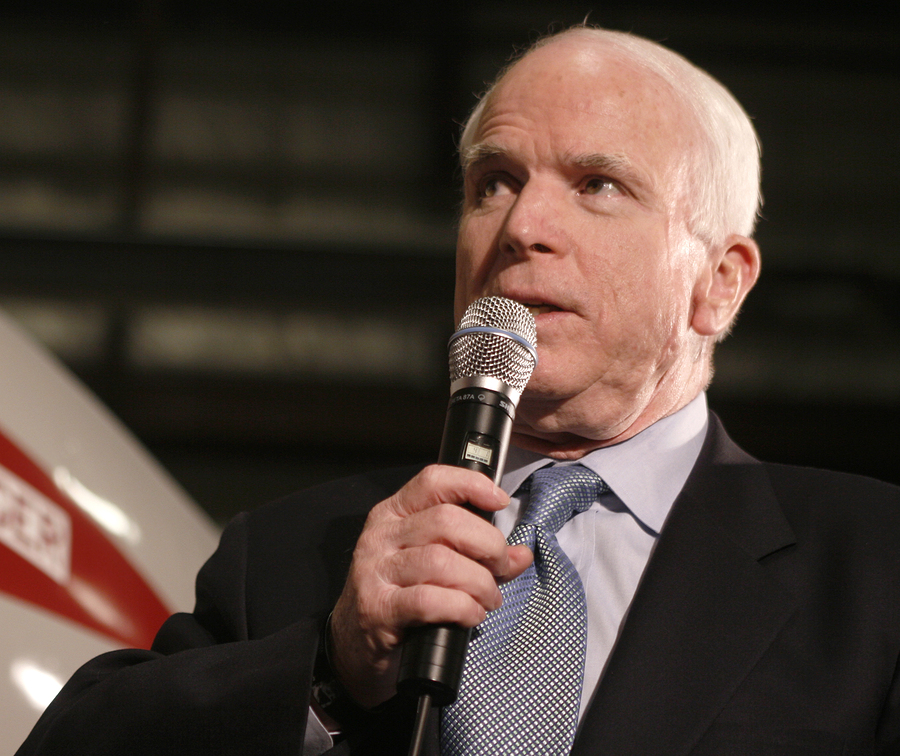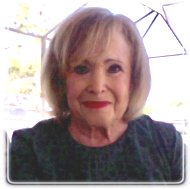 The death of Senator John McCain was commemorated, nationwide, for a full week. He was remembered, primarily, for his courage, while held captive in Vietnam. For 5 1/2 years, held as a prisoner, he refused special treatment.
The death of Senator John McCain was commemorated, nationwide, for a full week. He was remembered, primarily, for his courage, while held captive in Vietnam. For 5 1/2 years, held as a prisoner, he refused special treatment.
He turned down an “offer” to be released early, spent two years in isolation and carried permanent debilitating physical injuries as a result of poor medical care.
A quality that was an integral part of McCain’s character was his reliance on a moral code. This belief in what was right and what was wrong allowed him, in fact, compelled him, to speak out; to deliver his truth regardless of the consequences.
It would be difficult to name an individual who was considered to be a positive agent for change who was not guided by a personal inner voice that determined his/her actions.
Think of Nelson Mandela, Mother Theresa, and Mahatma Gandhi. These individuals put aside their comfort and well-being in service of compelling inner beliefs. A hero always believes in something that will benefit others.
Senator McCain shared another trait the courageous have in common, and that is beliefs, when possible, must be followed by action.
McCain so passionately believed in service to his nation that, after years of torture in Hanoi, when he signed a statement saying that he was a war criminal, he tried to hang himself in his cell. McCain believed he had become a traitor.
On July 27, 2017, only two weeks after surgery and a diagnosis of terminal brain cancer, McCain flew from Arizona to Washington to vote “no” on the repeal of the Affordable Care Act. His vote prevented repeal that had been designed in secrecy and without, in his opinion, thorough debate.
McCain exhibited his standards at a 2008 Republican rally. A woman in the audience began to talk about the reasons she did not trust Barack Obama. Senator McCain interrupted her and defended Mr. Obama by telling her she was wrong. He said that Obama was a decent man, a family man, and there was nothing to fear. This act, in all probability, cost him some Republican votes, and, perhaps, the Presidency. McCain refused to fail to defended decency and fairness. He displayed these traits time and again.
Heroes contain the capacity for passion. Be it physical or emotional, it would be hard to find a hero who approached life with a blasé point of view. Studies have shown that those who come to the rescue do not overthink the situation. In fact, too much deliberation leads, almost inevitably, to inaction. A hero does not wait to be asked to help.
The instinctual or “gut” reaction may have to do with unconscious drives. A mother who might freeze as a bear approaches is likely to spring into action if the bear is approaching her helpless child. The urgency to behave like the hero, i.e., what she perceives as the role of the “good mother”, outweighs the personal fear for her safety.
It is often tempting to cheer the rescuer and denigrate what is seen as cowardice. These judgments, however, are based on surface intelligence. An observer cannot see into the psyche of either actor and determine what comprises the resulting action or lack thereof.
It is important to remember that the hero is “only” human. Of course, faults of what is called character will be found. The hero may crave attention, be insensitive or stubborn. As a rule, those who are lionized and put on a pedestal have only one direction in which to go — down!
Those who knew John McCain assert that he was well aware of his deficiencies. He had a notable temper. It was theorized that he would have been surprised at all the nice things being said about him. He was aware that, in moments of temper, he said some pretty harsh things to those in his path. McCain would have understood their antipathy.
Sometimes, our heroes recede into the shadows. Sometimes, it is more heroic to remove oneself from the scene... Bayard Rustin is a good example. Rustin was petitioning for civil rights 13 years before Rosa Parks got on the bus. He was a mentor to Martin Luther King. As a follower of Gandhi, Rustin encouraged King to take the route of non-violent demonstration. King and Rustin had planned a demonstration at the 1960 Democratic convention.
Adam Clayton Powell, a representative from Harlem, became fearful that the event would distract from his position of power. It was known that Rustin was gay and Powell threatened to spread a rumor (that wasn’t true) that Rustin and King were lovers. King canceled the event and Rustin withdrew from the Movement.
Rustin had the fortitude to put his cause above his interests. One of the genuine original founders of the Civil Rights movement was willing to become “invisible” in order to preserve the efficacy of the crusade. A hero will make a decision based on his/her convictions and protect the community at his/her own expense.
One can expect those who behave heroically to be optimists. Their belief in their own ability to fix a problem is an important part of their willingness to participate. They understand life’s infinite connections. In other words, they concur that everyone has an effect on everyone else. A formalized version of this comes from physics: Theory of Everything or TOE.
Heroes are grateful for the lives they have lived. Mc Cain said he had a wonderful life despite the painful experiences that were put in his path. This gratitude grows out of the above-mentioned optimism. Recognizing that many good occurrences arrive, along with the difficult, distinguishes them from others.
Anne Frank, the 15-year-old whose family was forced into hiding because of their Jewish faith, wrote: “Isn’t it wonderful …that nobody need wait a single moment before starting to improve the world.” The Franks were found and murdered by the Nazis. Anne did not live past the age of 15.
On his deathbed Paul Newman, actor, race car driver, and philanthropist stated: “It’s been a great privilege to be here”. Gratitude for the gift of life has been and will continue to be, a motivator for the decisions to take on personal risk in the service of others.
" Carroll, J. (2017, July 21). The True Nature of John McCain's Heroism. Retrieved September 7, 2018, from https://www.newyorker.com/
" Barbak, M. Z. (2018, August 25). John McCain, War Hero, Political Maverick & GOP Standard-Bearer. Retrieved September 7, 2018, from http://latimes.comInsert in-text citation Edit Delete
" Klein, J. (2000, January 17). Flawed Hero. Retrieved September 7, 2018, from https://www.newyorker.com/Insert in-text citation Edit Delete
" What Makes a Hero. (2018, January 11). Retrieved September 7, 2018, from bbc.co.ukInsert in-text citation Edit Delete
" Robbins, M. (2018, January 18). What Makes a Hero. Retrieved September 7, 2018, from https://www.cnn.com/Insert in-text citation Edit Delete
" Cherry, K. (2018, March 23). Seven Characteristics of Heroism. Retrieved September 7, 2018, from https://www.verywellmind.com/Insert in-text citation Edit Delete
" Brooks, D. (2018, May 21). What Moral Heroes Are Made Of. Retrieved September 7, 2018, from https://www.nytimes.com/
" Frank, Anne. The Diary of Anne Frank. Pendulum Press, 1979.Insert in-text citation
" McCain, John, and Mark Salter. The Restless Wave: Good Times, Just Causes, Great Fights, and Other Appreciations. Simon & Schuster, 2018.
About the Author

Ruth Gordon
, MA/MSW/LCSWI bring with me +30 years of experience as a clinician. My Masters degrees are from: Assumption College, Worcester, MA, Master of Arts in Psychology & Counseling/ and Boston University School of Social Work, Boston, MA, an MSW in Clinical Social Work. This is the 11th year I have written a monthly newsletter that is sent to approximately 500 individuals. The archive can be found on my website, www.foreverfabulousyou.com.
Office Location:
The OC Building, 11983 Tamiami Trail, N., Naples, FL 34110
Naples, Florida
34110
United States
Phone: 239 293-4314
Contact Ruth Gordon
Professional Website:
www.foreverfabulousyou.com